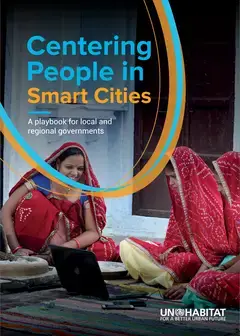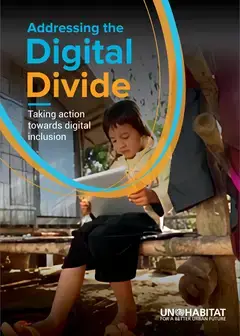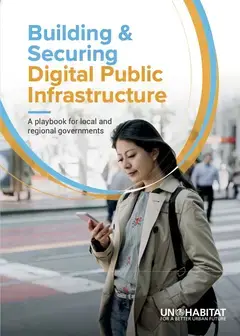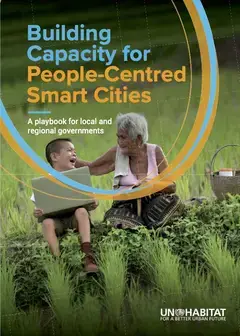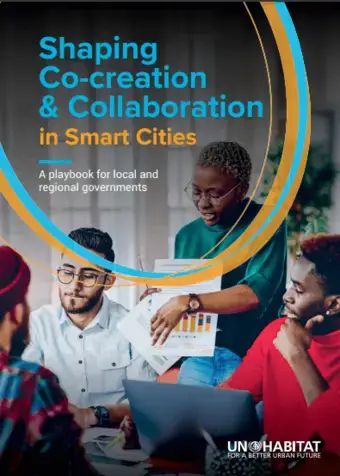
Launched in 2020, UN-Habitat’s flagship programme ‘People-centered Smart Cities’ acknowledges the transformative potential that digital technologies can have for sustainable urban development. Through the people-centered smart cities flagship programme, UN- Habitat provides strategic and technical support on digital transformation to national, regional and local governments.
‘Shaping Co-creation & Collaboration in Smart Cities’ is one of the new playbook that are key normative components of UN-Habitat’s people-centered smart cities flagship programme. This new serie of playbooks aim to empower local governments to take a multi-stakeholder approach to digital transformation that realizes sustainability, inclusivity, prosperity and human rights for the benefit of all. To that end, local, regional and national governments will find pragmatic guidance for how to develop smart city strategies that are more inclusive, sustainable, and aligned to the actual needs of residents.
This playbook provides guidance to municipalities to accomplish goals in each area that can drive achievement of the SDGs and spark the development of people-centred smart cities. This playbook is broken down into three activities that support the Community Pillar of the people-centred smart city approach.
Building smart cities with and for the community is a critical pillar of people-centred smart cities. This playbook charted a set of activities local governments can perform in order to achieve specific goals that use technology in new ways to increase community participation, and leverage the existing legal and regulatory toolkit local governments already possess towards building greater public awareness and oversight of smart city technology.
Meanwhile, new technologies powering government systems continue to introduce changes to the speed and efficiency with which local government operates, but if left unchecked, can also further bias and discrimination against marginalised communities. For all these reasons, technology is deeply interconnected with the future of life in cities. Local governments should take steps now to build a strong foundation of policies, plans and systems that enable them to better monitor and manage technology’s role in society, and place people at the centre of decision- making about its use.
Each activity from the playbook includes core values for stakeholders’ process and overall organizational culture and strategic goals that organizations can adopt. For each goal, UN Habitat outline a series of actions, recommendations and case studies that will help organizations to take actions right away. Finally, each activity ends with a policy toolkit, that highlights model policies that stakeholders can use to draw inspiration from or adapt for their own contexts.
